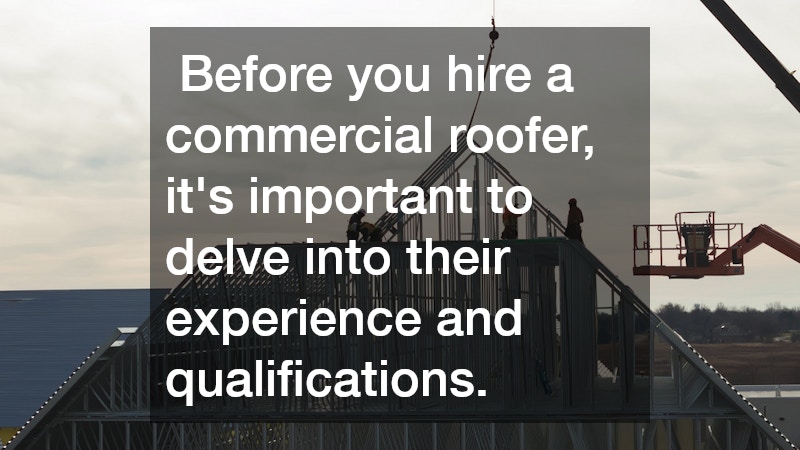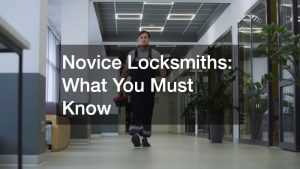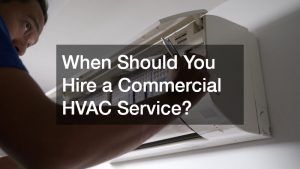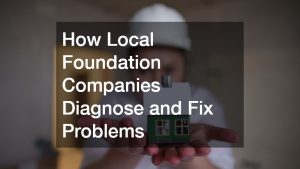1. Experience and Credentials
Before you hire a commercial roofer, it’s important to delve into their experience and qualifications. The roofing industry requires extensive knowledge and practical skills, so ensure the contractor has ample experience in commercial roofing projects similar to yours.
A roofer’s credentials are not just about years in business but should also include certifications from recognized bodies in the roofing industry. These certifications are usually awarded after demonstrating a high level of expertise and adherence to industry standards. Additionally, you might want to verify if the roofer belongs to any professional associations, which can be a testament to their commitment to quality and ongoing education.
Inquire about the variety of roofing systems they have worked on. An experienced commercial roofer should be familiar with different types of roofing materials such as metal, EPDM, TPO, and PVC. Understanding their proficiency with various systems can help you gauge if they can tailor their services to meet the specific needs of your building. Furthermore, experienced roofers can often foresee potential challenges that may arise during the installation process and have strategies in place to mitigate them. Their background knowledge enables them to offer solutions that are both effective and cost-efficient.
Don’t hesitate to ask for references from previous clients. Speaking to past customers will give you insights into the roofer’s reliability, the quality of their workmanship, and their adherence to deadlines. A roofer with a solid track record will be more than willing to provide references. Reviews and testimonials are also valuable resources, providing candid feedback and helping you make an informed decision. A company’s reputation is invaluable, and positive feedback is typically indicative of a trustworthy commercial roofer.
2. Licensing and Insurance
Ensuring that the commercial roofer you hire is properly licensed and insured is crucial. Licensing shows that the contractor meets the local or state requirements to perform commercial roofing work. Depending on your location, this could involve passing exams or completing specific training. Insurance, on the other hand, protects you from liabilities in case of accidents or damage that happen during the roofing project. It’s essential to ask for proof of both licensing and insurance and verify their validity with the respective authorities.
Worker’s compensation and liability insurance are key components of a commercial roofer’s insurance package. Worker’s compensation covers medical expenses and lost wages if a worker is injured while working on your property. This protects you from any legal or financial repercussions. Liability insurance covers any accidental damages to your property during the roofing process. By ensuring that your roofer is adequately insured, you safeguard yourself against unforeseen expenses that could arise from unfortunate incidents on the job.
Some states or regions have mandatory continuing education requirements for roofers to maintain their licenses. This ensures they stay abreast of new technologies, safety standards, and industry best practices. A licensed commercial roofer who actively participates in such programs demonstrates a commitment to professionalism and competence. Moreover, maintaining an up-to-date license indicates that a roofer is informed about the latest building codes and regulations, which is critical for ensuring compliance and avoiding potential legal issues.
3. Project Timeline and Cost Estimation
Discussing the project timeline with your potential commercial roofer is essential to avoid unexpected delays. A roofer should be able to provide a clear timeline from start to finish, considering the size and complexity of the roof. This not only helps in managing expectations but allows you to plan accordingly, minimizing disruptions to your business operations. Furthermore, understanding the timeline gives you a benchmark against which you can gauge the project’s progress. Any experienced roofer should accommodate scheduling needs and be flexible to adapt timing, if necessary, due to unforeseen weather conditions or material shortages.
Cost estimation is another critical discussion point before hiring a commercial roofer. A reputable roofer will conduct a thorough inspection of your property before presenting you with a comprehensive quote. The estimate should break down the costs, including materials, labor, and any additional charges for permits or equipment. Comparing multiple quotes from different roofers can provide a clearer picture of reasonable pricing for the job. It’s crucial to remember that the lowest bid isn’t always the best; it could indicate inferior work or materials, which may cost more in the long run due to repairs or replacements.
Make sure to ask about payment terms for the roofing project. Some contractors might require an upfront deposit, while others may accept payment upon completion or in installments. Understanding these terms ahead of time will help you manage your finances and avoid any future disputes over payment. A clear contract that outlines these terms, as well as the timeline and scope of work, will protect both parties and provide a legal framework should any discrepancies arise. It’s always wise to have everything documented before the project begins to prevent potential misunderstandings or miscommunications.
4. Warranty and Maintenance
The warranty provided by the commercial roofer is a critical aspect to consider. A credible roofer should offer warranties for both the materials and workmanship. Generally, material warranties come from the manufacturer and cover defects in the roofing products used. Workmanship warranties, offered by the contractor themselves, cover errors in installation or any issues arising due to skill or labor. Understanding the terms and scope of these warranties will help you know what protection you have in case of future roofing problems.
Regular maintenance is key to extending the lifespan of a commercial roof, reducing potential repair costs over time. A professional roofer should offer a maintenance plan tailored to your roof type and condition. Maintenance may involve regular inspections, cleaning, and minor repairs, addressing issues before they escalate into significant problems. Discussing maintenance services with your roofer ensures that your roof remains in optimal condition, safeguarding your investment. A roofer who offers a comprehensive maintenance plan demonstrates a commitment to the long-term care of your roof rather than just completing the installation.
Check if the roofer you are considering has a follow-up warranty service after the installation is complete. This is an important service as it indicates the contractor’s confidence in their work and willingness to address any post-installation issues. Some roofers offer the first maintenance visit as part of the installation package, ensuring everything meets the expected standards. Having a roofer who stands behind their work not only provides peace of mind but also emphasizes the importance of quality in their business ethos. Inquire thoroughly about any costs associated with future maintenance or warranty services to avoid any surprises down the line.








